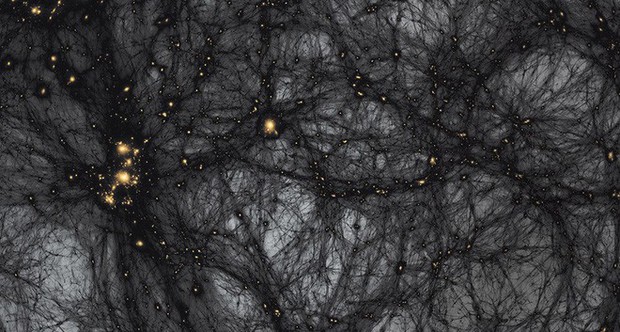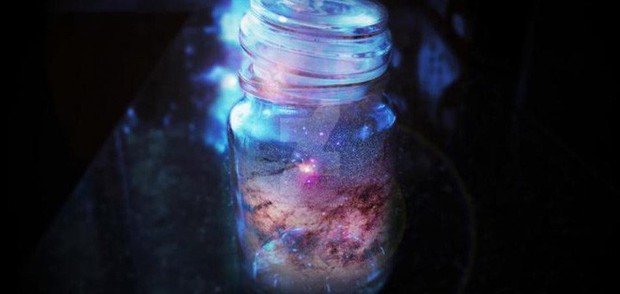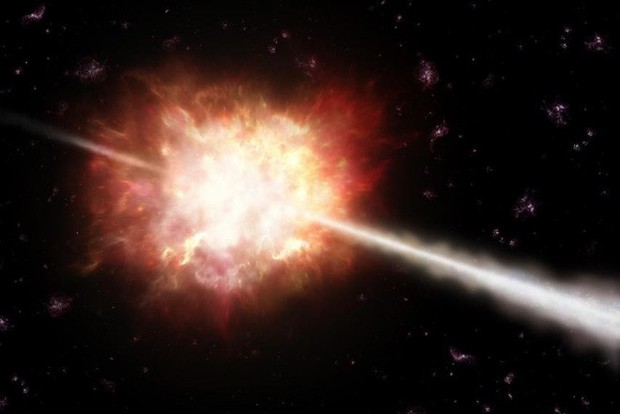Now scientists have an extremely powerful tool to help them directly observe the mysteries of the universe …
Supermassive black holes are intrinsic components in most galaxies in the universe, but so far astronomers have not been able to fully explain the origin, nor its impact on the development of the Way. milky.
To clarify these questions, the scientific community is increasingly interested in hypothetical cosmic models, created from the most powerful supercomputers in the world today. These hypothetical cosmological models, if they were to be published soon, would be the key to the greatest mystery of astronomy today.
Dark matter network
The universe today is made up of dark matter. This invisible matter makes up 84.5% of the total mass of all matter in the universe and even so it does not interact with wave magnetic radiation (which is the prime example. Is light).
Although supposed to be composed of particles of non-baryonic matter, this type of matter did not produce any gravitational effect directly visible to the naked eye. We know it exists, but we cannot observe it.
Since dark matter is the lifeblood of the universe, it is bound to be what plays a central role in any large-scale simulation of the universe.
Create a virtual universe
In this ambitious project, a team of scientists from around the world used an array of supercomputers to create a virtual space system, of unprecedented scale.
This project is called “Illustris-The Next Generation”. This simulation is based on the fundamental laws of physics and shows us how dark matter networks have evolved and built the universe since the Big Bang.
The scientists used the AREPO coding system, a powerful coding system based on the Hazel Hen computer system, based in Germany. It is the largest system to date, it runs on 24,000 processors, takes up to two months to complete, and is capable of modeling the formation of millions of universes at scale. tissue assumes up to 1 billion light years.
To put it more simply, we can imagine that the scientists “threw” all possible materials into this hypothetical environment, and let the fundamental laws of cosmic physics decide for themselves. See what the shape of the universe will look like. And the results really surprised many people.
This result is presented in the form of research articles published in the journal Royal Astronomical Society, and it shows the role of black holes in the formation of galaxies.
The galaxies that form stars are always filled with the light of young forming stars. Over time, star formation decreases rapidly, and as a result, only red stars remain in the dying galaxy.
Scientists have always questioned this transformation in star formation, and with Project IllustrisTNG’s cosmic model, they hope to find their answer.
“The only entities capable of suppressing star formation in a galactic band are giant black holes located in the center of the galaxy.” – Dylan Nelson, researcher astronomer at practitioner Max Planck, said.
“This ultra-fast gravitational flux can reach speeds of up to a tenth the speed of light, and it affects giant star systems billions of times the size of the central black hole itself.
This simulation of the universe can help give a visual view of the universe. With the IllustrisTNG project, astronomers have added a powerful tool to help them better understand the mysterious phenomena of the universe and, most likely, will help them find the key. the explanation of the constant formation and expansion of the universe in which we live.
Howstuffworks





